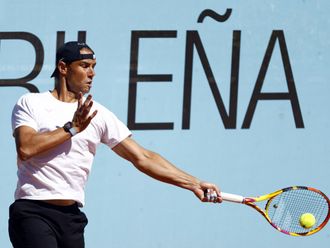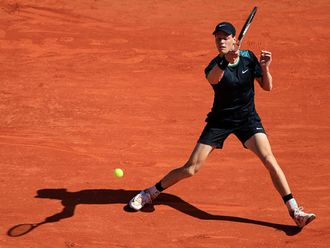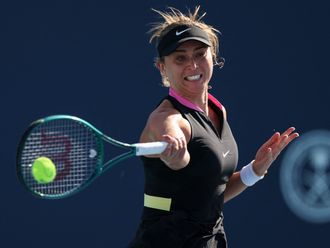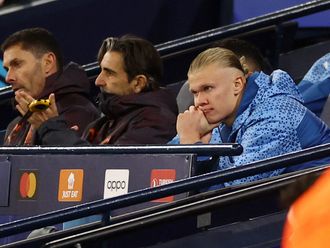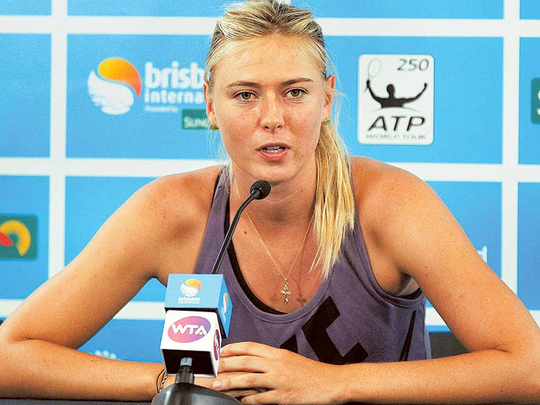
Laussanne: Russian tennis star Maria Sharapova won a partial victory in the world's top sports court on Tuesday after appealing her two-year suspension for a doping violation.
Sharapova hailed the reduction of her two-year doping ban on Tuesday as “one of my happiest days”.
The Court of Arbitration for Sport (CAS) cut her ban imposed by an independent tribunal appointed by the International Tennis Federation for testing positive for meldonium to 15 months.
“I've gone from one of the toughest days of my career last March when I learned about my suspension to now, one of my happiest days, as I found out I can return to tennis in April (2017),” Sharapova said.
Return to tennis in April 2017
Sharapova's punishment was reduced by nine months, the CAS announced, ruling that the original penalty was disproportionately harsh for an infraction that Sharapova committed unintentionally.
Sharapova, 29, tested positive for meldonium, a heart medication newly banned by anti-doping regulators, at the Australian Open in January.
She publicly disclosed the violation in March, days after she was privately notified of the lab results.
She will now be eligible to return to international competition on April 25, 2017, a week after her 30th birthday and in time for the French Open and Wimbledon.
Under the previous ruling, she would have been suspended until January 25, 2018.
Unaware
Meldonium, which is believed to improve blood flow and accelerate an athlete's recovery while training, was not banned by the World Anti-Doping Agency until 2016.
Sharapova has said she was unaware that use of the drug in international sports had been restricted.
She had taken the substance since 2006, she said, to treat an array of health problems, including frequent bouts of the flu, the possible onset of diabetes and a magnesium deficiency.
She said she failed to read an email from the anti-doping agency in 2015 indicating that the drug would be prohibited the following year.
In June, a disciplinary panel appointed by the International Tennis Federation accepted Sharapova's claim that the violation had been accidental, a finding that spared her from a suspension of up to four years.
Imposing the original two-year punishment, the panel said she bore "very significant fault" and "sole responsibility" for the positive test.
Appealing to the sports arbitration court — the final authority on global sports disputes — Sharapova argued at a hearing in New York last month that tennis officials had not done enough to publicize the change and that two years was a disproportionately harsh penalty.
“This was an honest administrative mistake,” John Haggerty, a lawyer for Sharapova, said. “There was no intent to cheat.”


